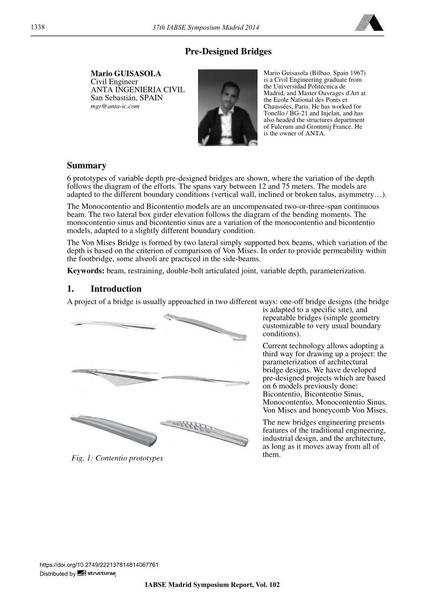Pre-Designed Bridges

|
|
|||||||||||
Détails bibliographiques
| Auteur(s): |
Mario Guisasola
|
||||
|---|---|---|---|---|---|
| Médium: | papier de conférence | ||||
| Langue(s): | anglais | ||||
| Conférence: | IABSE Symposium: Engineering for Progress, Nature and People, Madrid, Spain, 3-5 September 2014 | ||||
| Publié dans: | IABSE Symposium Madrid 2014 | ||||
|
|||||
| Page(s): | 1338-1344 | ||||
| Nombre total de pages (du PDF): | 7 | ||||
| Année: | 2014 | ||||
| DOI: | 10.2749/222137814814067761 | ||||
| Abstrait: |
6 prototypes of variable depth pre-designed bridges are shown, where the variation of the depth follows the diagram of the efforts. The spans vary between 12 and 75 meters. The models are adapted to the different boundary conditions (vertical wall, inclined or broken talus, asymmetry…). The Monocontentio and Bicontentio models are an uncompensated two-or-three-span continuous beam. The two lateral box girder elevation follows the diagram of the bending moments. The monocontentio sinus and bicontentio sinus are a variation of the monocontentio and bicontentio models, adapted to a slightly different boundary condition. The Von Mises Bridge is formed by two lateral simply supported box beams, which variation of the depth is based on the criterion of comparison of Von Mises. In order to provide permeability within the footbridge, some alveoli are practiced in the side-beams. |
||||
